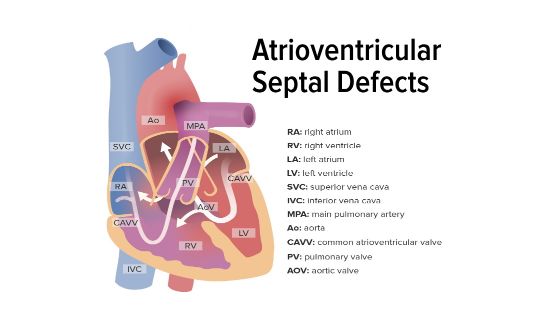Medical Device Marketing

Neuralink: Revolutionizing the Future of Brain-Computer Interfaces
Introduction Imagine a world where humans can communicate directly with machines using their thoughts. This futuristic vision is rapidly becoming a reality, thanks to Neuralink—a groundbreaking company founded by Elon Musk in 2016. Neuralink aims to develop advanced brain-computer interfaces (BCIs) that could change the way we interact with technology and potentially transform healthcare, artificial intelligence, and our understanding of the human brain. In this blog, we will explore the technology behind Neuralink, its applications, and the potential it holds for the future. What is Neuralink? Neuralink is a neurotechnology company that focuses on creating implantable brain-machine interfaces (BMIs). The primary goal of the company is to connect the human brain to computers, allowing individuals to communicate with machines through thought alone. Neuralink has developed a small, coin-sized device known as the “Link,” which is surgically implanted into the brain. This device consists of flexible electrodes—thinner than a human hair—that

Understanding the Function and Importance of the AV Node in Cardiac Conduction
Introduction The human heart is a marvel of biological engineering, orchestrated by a complex network of electrical signals. At the center of this intricate system lies the atrioventricular (AV) node, a crucial component of cardiac conduction that plays a vital role in maintaining efficient heart function. The AV node is a specialized group of cells located in the heart’s septal wall between the atria and ventricles. Its primary function is to delay electrical impulses coming from the atria, allowing for optimal coordination between atrial contraction and ventricular filling. This delay ensures proper blood flow and prevents chaotic electrical activity that could compromise the heart’s efficiency. Understanding the intricacies of the AV node’s function and its importance in cardiac conduction can provide valuable insights into the diagnosis and management of various heart rhythm disorders. What is the AV Node? The atrioventricular (AV) node is a specialized mass of cells located in

Atrioventricular (AV) Block: Understanding Heart Conduction Disorders
The heart, our vital life-sustaining organ, relies on a precise electrical system to maintain its rhythm and ensure the efficient circulation of blood. This system coordinates the heart’s contractions, allowing it to pump blood effectively. However, when this electrical system malfunctions, it can lead to various conduction disorders, one of which is Atrioventricular (AV) block. What is AV Block? Atrioventricular (AV) block, also known as heart block, is a condition where the conduction of electrical signals between the atria (upper chambers) and the ventricles (lower chambers) of the heart is impaired. This disruption can affect the heart’s ability to maintain a regular rhythm and, consequently, its ability to pump blood efficiently. AV block is classified into three main types based on the severity and nature of the conduction delay: First-Degree AV Block: This is the mildest form, where the electrical signals are delayed but still reach the ventricles. It is

Treatment Options for Heart Valve Disease
Heart valve disease is a condition that affects the proper functioning of one or more of the heart’s four valves: the aortic, mitral, tricuspid, and pulmonary valves. These valves are responsible for ensuring blood flows in the correct direction through the heart and to the rest of the body. When these valves become damaged or diseased, they can disrupt blood flow, leading to serious health issues. Understanding the treatment options available for heart valve disease is crucial for managing the condition effectively and improving quality of life. Understanding Heart Valve Disease Heart valve disease can manifest in two primary forms: Stenosis: This occurs when the valve opening becomes narrowed, restricting blood flow. Regurgitation (or Insufficiency): This happens when the valve does not close properly, allowing blood to flow backward. Symptoms of heart valve disease can include shortness of breath, fatigue, dizziness, chest pain, and swelling in the ankles, feet, or

Inspire Sleep Apnea Device Review: How It Works and Why It’s Changing Lives
Sleep apnea affects millions of people worldwide, leading to disrupted sleep, fatigue, and serious health complications. While many are familiar with traditional treatments like CPAP machines, a newer, innovative solution has emerged: the Inspire Sleep Apnea Device. In this review, we’ll explore how Inspire works, its benefits, and whether it could be the right option for managing your sleep apnea. What is the Inspire Sleep Apnea Device? Inspire is an FDA-approved medical device designed for individuals with moderate to severe obstructive sleep apnea who cannot tolerate or achieve consistent results with a CPAP machine. Unlike CPAP, which uses air pressure to keep the airway open, Inspire works by stimulating the nerves that control the tongue and other muscles to prevent airway blockage. The device is implanted during a minimally invasive outpatient procedure. Once activated, it monitors your breathing patterns during sleep and sends gentle stimulation to the airway muscles to

Atrioventricular (AV) Conduction: The Key to Efficient Heart Function
Introduction Efficient heart function relies on the harmonious coordination of electrical signals, ensuring the synchronized contraction of its chambers. At the core of this coordination lies atrioventricular (AV) conduction, a vital process that ensures the optimal flow of electrical impulses through the heart. AV conduction refers to the transmission of electrical signals from the atria to the ventricles via the AV node. This process involves a precise timing mechanism, allowing for a controlled delay before the ventricles contract, maximizing blood flow and cardiac output. Understanding the intricacies of AV conduction can shed light on various cardiac conditions such as heart block or irregular heart rhythms. By comprehending the key role of AV conduction, healthcare professionals can diagnose and manage these conditions effectively, ensuring optimal heart function for patients. The Role of the Atrioventricular (AV) Node The AV node, located between the atria and the ventricles, plays a crucial role in